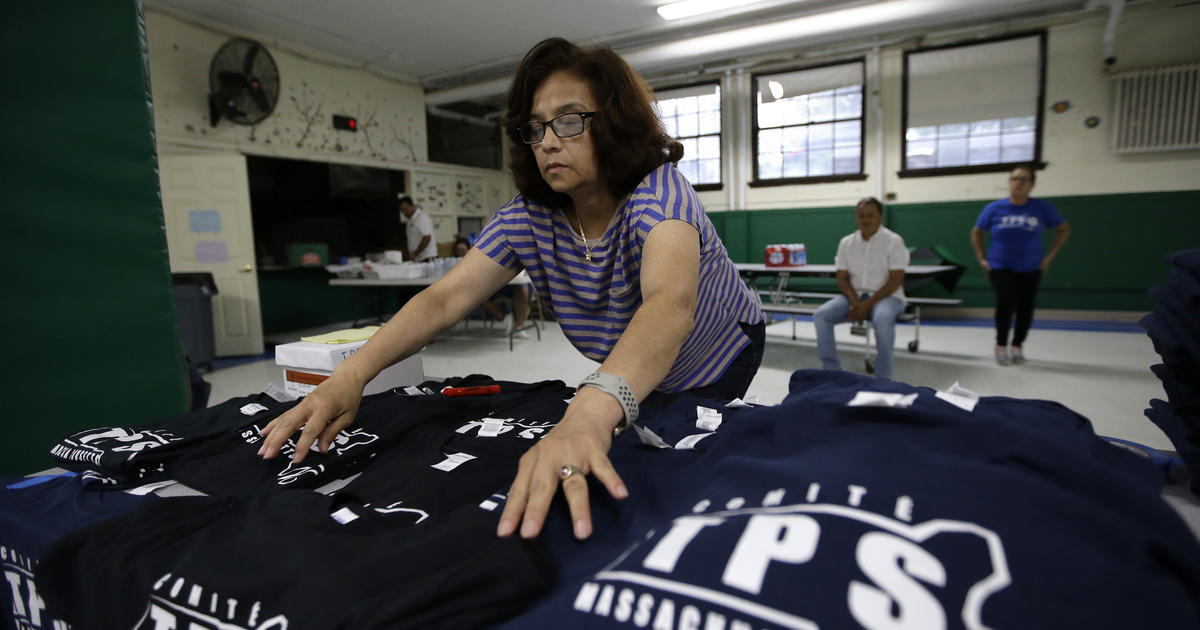
A divided federal appellate court allowed the Trump administration on Monday to move forward with plans to terminate several humanitarian programs that shield hundreds of thousands of immigrants in the U.S. from deportation.
A three-judge panel for the 9th Circuit Court Appeals said it could not second guess the Trump administration's efforts to end Temporary Protected Status (TPS) for roughly 300,000 immigrants from El Salvador, Haiti, Nicaragua and Sudan. Two Republican-appointed judges on the panel ruled that decisions by the U.S. Department of Homeland Security to wind down the TPS programs were not reviewable, setting aside a lower court order that had prevented officials from ending these protections.
Through the 2-1 ruling, the court also rejected the argument that the decisions to end the TPS programs violated the equal protection clause of the U.S. Constitution because of President Trump's disparaging comments about immigrants from non-European, predominantly non-white countries. The judges acknowledged Mr. Trump's "offensive" comments but did not find a direct link between them and the moves to eliminate TPS protections.
"While we do not condone the offensive and disparaging nature of the President's remarks, we find it instructive that these statements occurred primarily in contexts removed from and unrelated to TPS policy or decisions," U.S. Circuit Judge Consuelo Callahan, a George W. Bush appointee, wrote in the majority's opinion.
In her dissent, U.S. Circuit Judge Morgan Christen, who was appointed by President Obama, said the TPS terminations were reviewable and that they violated federal administrative law. Christen also highlighted the "monumental" consequences of the majority's ruling, which she called "deeply flawed."
"The importance of the interests at stake make the argument in favor of reviewability even more compelling, because the lives of 300,000 non-citizens and 200,000 U.S. citizen children will be forever changed by these TPS terminations," Christen wrote.
Given an agreement between Justice Department lawyers and the groups challenging the end to the humanitarian immigration programs, Monday's ruling also effectively allows the administration to finalize its decisions to terminate TPS designations for Nepal and Honduras.
Established by Congress in the early 1990s, TPS programs are designed to avoid deporting immigrants to home countries plagued by armed conflict, recovering from natural disasters, dealing with an epidemic or that otherwise can't guarantee the safe return of their citizens.
Stripping current TPS recipients of their status would make them vulnerable to deportation, but their fate will likely hinge on the outcome of November's presidential election, since the Trump administration has pledged to give immigrants enrolled in the programs 120 days after a favorable court order to end their protections.
Under an agreement the Trump administration made with El Salvador's center-right government last fall, the U.S. agreed to give more than 250,000 Salvadoran immigrants with TPS an additional year to live and work in the country after the conclusion of litigation. That compromise came weeks after the Salvadoran government signed an accord allowing the U.S. to reroute non-Salvadoran asylum-seekers from the southern border to El Salvador.
Democratic presidential nominee Joe Biden has vowed to shield TPS holders from deportation to "unsafe" countries and to expand the protections to Venezuelans who fled the country's economic collapse.
Ahilan Arulanantham, the lead lawyer challenging the end to the humanitarian programs, said Monday's ruling means that non-Salvadoran TPS recipients could lose their status as soon as March 5, 2021. TPS protections for Salvadoran immigrants could expire in November 2021, he added.
Arulanantham, who is also the senior counsel at the American Civil Liberties Union for Southern California, said the end of the TPS programs at the center of the case would present tens of thousands of U.S. citizen children with a "horrific choice."
"It means that those families with American teenagers and kids in grade school and high school and middle school — like Crista Ramos, our lead plaintiff in the case — would be faced with the choice of either separating from their parents and having to move with an uncle or aunt, or leaving to countries like El Salvador, Haiti or Sudan, which they've never known," Arulanantham said.
Arulanantham said his group expects to file a request for the 9th Circuit to reconsider Monday's order through an "en banc" vote by 11 judges. If that request is denied, the last recourse for TPS recipients would be an appeal to the U.S. Supreme Court.
A Justice Department spokesperson praised Monday's ruling, denouncing the arguments that racial animus played a role in the TPS terminations as "baseless accusations."
"For approximately two years, the district court's injunction prevented the Department of Homeland Security from taking action that Congress has vested solely within the discretion of the Secretary of Homeland Security — action that is statutorily precluded from judicial review," the spokesperson added.
Clare Hymes contributed to this report.
World - Latest - Google News
September 15, 2020 at 06:51AM
https://ift.tt/2H1JWgt
Appeals court allows Trump administration to end humanitarian protections for 300,000 immigrants - CBS News
World - Latest - Google News
https://ift.tt/2SeTG7d
https://ift.tt/35oCZy1
Bagikan Berita Ini














0 Response to "Appeals court allows Trump administration to end humanitarian protections for 300,000 immigrants - CBS News"
Post a Comment